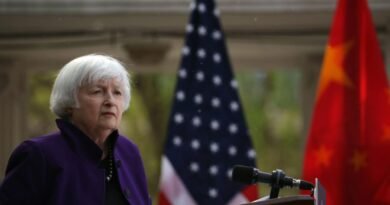Criticizing billionaires is not the solution to the inequality crisis.

Many liberals today are in favor of the “easy money” culture, which includes generous government relief and low central bank interest rates, as a means to fund social programs and reduce wealth inequality.
However, they should be cautious about what they wish for. Despite popular belief, big government has played a significant role in the accelerated growth of the billionaire class that many liberals strongly oppose.
Over the past few decades, financial markets like the stock and bond markets have seen consistent growth, buoyed by the inflow of money from the Treasury and the Federal Reserve.
Some critics argue that Wall Street has prospered at the expense of Main Street, with the wealth gap potentially leading to revolutionary upheavals. This concern has led to calls for the abolition of billionaires, a sentiment previously unheard of in the United States.
However, the proposed solution of heavy government intervention in the markets only perpetuates the problem, turning capitalism into what some describe as “socialism for the very rich.”
Government, rather than being the adversary, has become the enabler of the power elite. By immersing capitalism in complex debt and regulation, the system created favors only the wealthiest tycoons and corporations who have the resources to navigate it.
In countries with capitalist economies, the concentration of wealth among the richest individuals has been steadily increasing. In the United States, the wealthiest one percent now control 35% of the national wealth, compared to 1980 when it was half that, mainly at the expense of the upper middle classes.
In today’s economy, many individuals find themselves in debt exceeding their assets, leaving them with a negative net worth. These shifts in wealth distribution reflect the impact of easy money flooding the economy with debt and inflating financial asset values.
For instance, the top one percent of Americans own 54% of all stocks by market value, while the bottom 90% own only 7%.
As the government consistently intervenes in markets during moments of crisis, it perpetuates wealth inequality, creating a cycle of popular discontent.
Since the early 2000s, the one percent’s control of American wealth has surpassed that of the 90%, leading to calls to address the billionaire class specifically, rather than just the top one percent.
The Democratic party has voiced concerns about the extreme wealth inequality, with calls to tax billionaires more heavily to reduce their influence. This shift in rhetoric reflects a growing awareness of wealth inequality, especially in the United States.
Many liberals look to Europe’s more managed capitalism as a potential solution to the growing wealth divide, but this approach has not curtailed the rise of billionaires in those countries.
While oil baron John D. Rockefeller held a record share of the U.S. GDP in the early 20th century, by 2021, modern-day moguls in other parts of the world were surpassing that level of control over their economies.
The advocates of big government often argue that while easy money may benefit the wealthy, it also creates jobs and helps boost overall incomes. However, income inequality has also grown alongside the rise of easy money culture.
Though talk of “a new gilded age” has been circulating, the income share of the top one percent has doubled since 1980, with the majority of gains going to the super rich at the expense of the middle classes.
To address the imbalance in capitalism, reducing government intervention, limiting easy money policies, and decreasing regulations can help create a fairer system that promotes competition and innovation.
If liberals aim to address wealth inequality without undermining capitalism, they must embrace change and move away from the culture of easy money, which ultimately benefits billionaires.
This excerpt was taken from What Went Wrong With Capitalism by Ruchir Sharma, published by Simon & Schuster.



